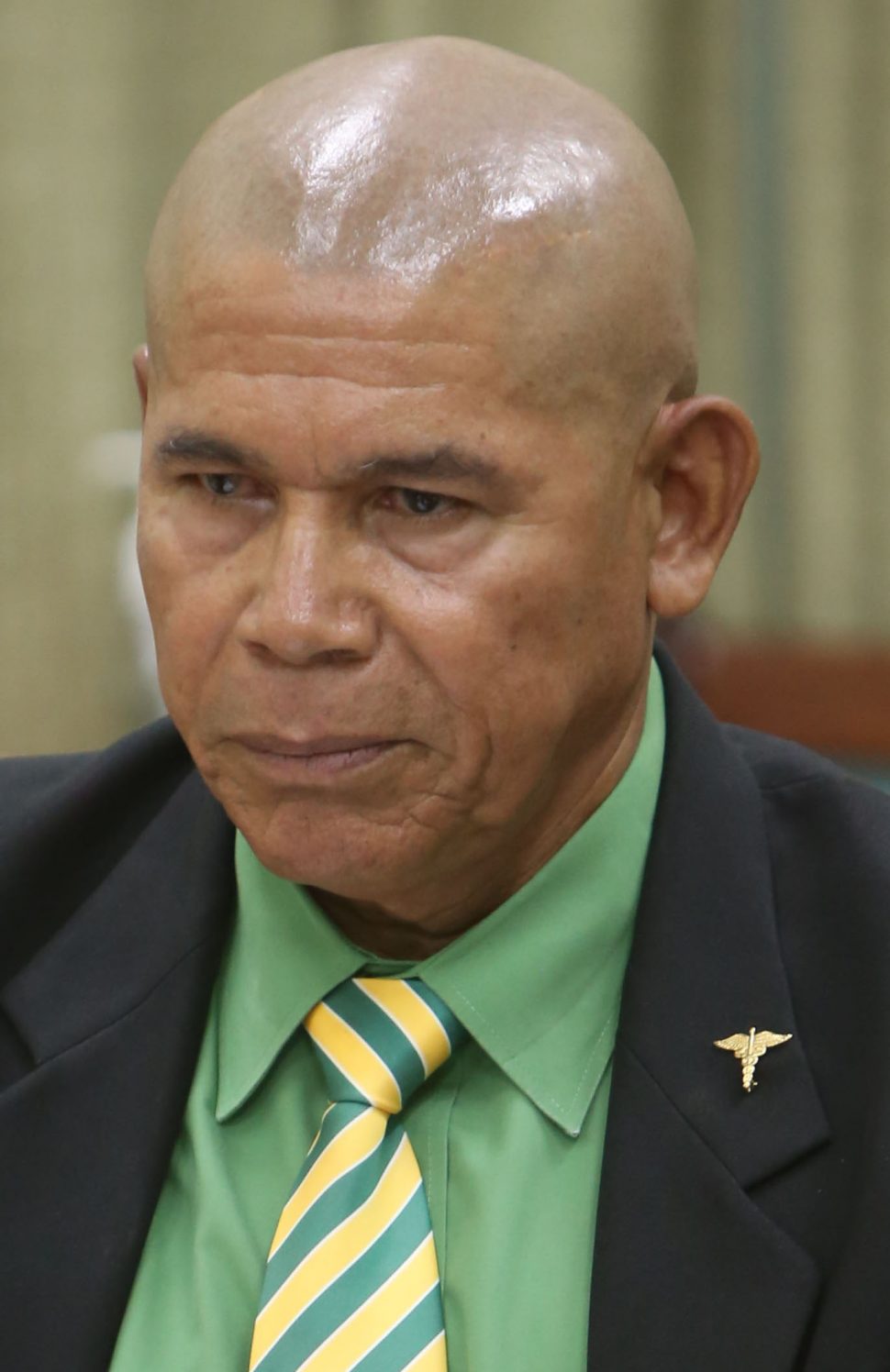By Noelle Smith
Three months after he took over the sport portfolio as part of his remit in the Ministry of Social Cohesion, Dr. George Norton says his administration has been able to hold anti-doping seminars and sports tourism forums among other activities.
“Right now things are being put in place to develop a sports policy. This sports policy will facilitate the development of sports in Guyana and help out the athletes” Dr. Norton said.
In a follow up interview on Wednesday at his Main Street office to one Stabroek Sport conducted with him in September, Norton stressed on the importance of the sports policy.
“It would be able to ensure that all of the sporting disciplines benefit fully. There would have to be meetings with stakeholders to find out what would be needed to facilitate their needs. There would have to be proper development in order to achieve the full potential of athletes in Guyana and this will be achieved through the implementation of the policy”, he said. As the year progresses, he said, officials and the other relevant personnel will be meeting with sporting organisations to develop the sport policy.
Deputy Director of Sport, Brian Smith, who was present during the interview said, there are forty-seven registered sports teams with the sports commission. Noting that not all sporting disciplines are represented in the National Sports Commission (NSC), he said, “it is important that they know they are represented and taken into full consideration with everything that is being done.” This point was raised as there was mention of the amount of registered sporting disciplines with the NSC. “Understandably, those who are not directly represented would be skeptical to their positions, and we aim to have everyone comfortable”, he continued.
In relation to national teams travelling overseas to represent Guyana, Norton said he hopes to see the continued success of athletes who are already doing well and the improving of those who are now beginning to find their footing. He reiterated his willingness to assist wherever possible to facilitate training, acquisition of training and competition gear.
Both Norton and Smith emphasized the importance of seeking assistance in a structured way.
“There has been times when athletes or associations come to us asking to help with money to travel or for accommodation one week in advance. We have even had that they are already away at the competitions unknowing to us, with the athletes not having anywhere to sleep. As the new year begins, we would remind the associations- federations of the importance of giving us the notice with some time in advance so that we are not ambushed and we do our best to assist if not with the cash, other ways. There is a structure to getting things done in order to attain funding”, Smith said.
On the calendar for some athletes is the Commonwealth Games, where funds would have to be given for travels or accommodation.
It was pointed out that they would push funding to events and athletes who are more likely to be more practical.
“Yes, we would like to send all the athletes for the exposure and experience but the funds being put behind these athletes to attend these competitions, we would have to weigh the possibility of their success rates”, Norton said. An example used to bring the point of success rate and the practicality of success rate was the national rugby team, who have continued to be dominant in the Caribbean, as well as improving their world ranking at international tournaments they attend.
Opportunities for the young athletes to better themselves not just on the athletic spectrum but holistically was raised. There are measures to be put in place when the before- mentioned sports policy is successfully laid out. Continued availability of scholarships as well as programmes to ensure athletes and former athletes benefit from sports in the long run are on the cards.





